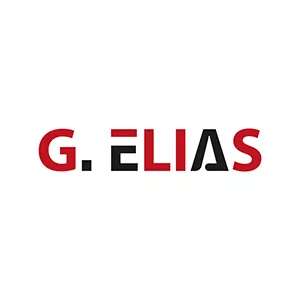- within Insolvency/Bankruptcy/Re-Structuring, Finance and Banking and International Law topic(s)
- in United States
- with readers working within the Law Firm industries
INTRODUCTION
The telecommunications industry in Nigeria has experienced significant growth and transformation over the years, playing a pivotal role in the country's socio-economic development. As a matter of necessity, it has become expedient that the regulatory framework which governs the industry be reviewed regularly to ensure the continued protection of consumer rights, promotion of fair competition, and facilitation of innovation. The Nigerian Communications Commission (the "NCC") established pursuant to the Nigerian Communications Act 2003 (the "Act")1 which is the primary regulatory authority for the telecommunications industry, recently issued the Nigerian Communications Commission (Type Approval) Regulations, 2024 (the "Regulations")2 , and subsequently, the Type Approval Business Rules, 2024 (the "Rules")3 . These new subsidiary legislations are designed to streamline the process of type approval for telecommunications equipment and ensure that all devices used within the Nigerian telecommunications network meet specific safety, quality, and performance standards. The Regulations and Rules for the purposes of this article shall be jointly referred to as the "2024 Regulations". This article provides an overview of the 2024 Regulations, highlighting their key provisions.
OVERVIEW OF KEY PROVISIONS
Scope and Application
The Regulations, which revoked the Type Approval Regulations No. 23, 2008 and the Type Approval Guidelines, 4 aims to promote, among others, interoperability between communication networks, protect the integrity of these communication networks, and ensure that communications equipment used in the communications networks are safe and do not compromise national security5 . The Regulations generally seeks to improve the communications services enjoyed by consumers by maintaining a strict standard to be observed by suppliers and users of communications equipment in Nigeria.
The 2024 Regulations, in addition to the Act, provide a framework for the approval of communications equipment for connection to communication networks in Nigeria6 , and applies to every person that provides communication services, manufactures, or supplies communications equipment (the "Equipment Holder").7 Equipment Holders are required to apply and obtain the Type Approval (defined below) in line with the provisions of the Rules before they are used or supplied.
Overview of the Type Approval
"Type Approval" is defined as "an authorization by the NCC to use or supply an Equipment Type". An "Equipment Type" is interpreted to mean "a type of communications equipment specified in terms of its manufacturing brand name, trade name, model number, version number and function." Communication equipment includes phones, laptops, wires, cables, and other heavy-duty equipment like masts and the likes. It is important to note that Equipment Holders are required to comply with other licensing requirements provided under the Act or any other regulations of the NCC in addition to the Type Approval requirements.8
Approval Procedure
All applications for Type Approval must be directed to the NCC stating (i) the applicant's name and contact details; (ii) the Equipment Type and its manufacturing brand name, product name, model number, version number and its functions; (iii) a Declaration of Conformity (a confirmation that the Equipment Type meets the applicable standards); (iv) the portions of the application that are confidential. Applicants are to note that all other licensing requirements applicable to Equipment Holders still apply regardless of the obtention of Type Approval.
There are also fees applicable to the obtention of Type Approval at both the application and approval stages. The Rules provides that the NCC shall provide a schedule of the required fees on its website9 . The said schedule of fees may be found here.
The NCC is required to review the applications sent in by applicants and communicate its decision to the applicant within 30 (thirty) days of receiving the application, and in the case of a refusal, include reasons for such refusal. 10 The Regulations also requires the NCC to maintain a list of approved Equipment Types. Thus, any individual who deals in communications equipment should consult the NCC's list of approved Equipment Type before setting out to obtain Type Approval to determine whether that Equipment Type still requires Type Approval or is exempted.
Exemption from Registration
Where an Equipment Holder meets certain requirement, they may be exempted from mandatorily obtaining Type Approval.11 The Regulations provides that a communications equipment will not require Type Approval where it has already been approved by the NCC as an Equipment Type and satisfies the following conditions:
- the equipment complies with Type Approval standards applicable to that Equipment Type according to a valid test documentation. (It is worthy to note here that the Regulations mandates that the NCC maintains a list of test laboratories suitable to perform these valid tests12);
- the equipment has the same manufacturing brand, product name, model number and function as the approved Equipment Type;
- the equipment uses no radio frequencies besides those used by the approved Equipment Type; and
- the equipment requires no kinds of physical network interface besides those required by the approved Equipment Type.13
Complaints Procedure and Investigation
The Regulations makes provisions for making complaints or objection to the grant of Type Approval. Complaint in respect of the working of any equipment that has been Type approved or objection to the Type Approval of any equipment may be made by any person who shall submit such a complaint or objection in a form prescribed by the NCC stating the: (a) name and address of the complainant; (b) name and address, if known, of the person against whom the complaint is made; and (c) facts, including supporting data, where available, showing that the apparatus – (i) does not conform to these Regulations, (ii) may cause harmful interference to communication network, (iii) is a risk to human health or the environment, or (iv) is efficient for any other reason adduced for such objection or complaint.14
Upon receipt, the NCC shall forward a copy of the complaint or objection to the applicant or Equipment Holder of a Type Approval certificate and give the applicant or Equipment Holder an opportunity to give evidence to rebut the complaint or objection.15 Further, in considering an application for Type Approval or in evaluating the operation of equipment that has been granted Type Approval, the NCC is to consider any complaint or objection received. 16
In addition, the NCC may, either on its own volition pursuant to its powers of information gathering under the Act17 , or consequent upon any complaint, investigate the use or supply of communications equipment by an Equipment Hoder pursuant to the Act.18
Contravention and Enforcement
Failure of an Equipment Holder to fulfil an obligation set out under the 2024 Regulations or the Type Approval Standards19 are deemed to be contravention of the provisions of the Regulations.20 Thus, to enforce the provisions of the 2024 Regulations, or the Type Approval Standards the NCC may, in addition to the provisions of sections 131 and 133 of the Act,
- impose administrative fines pursuant to Regulations 12 and 14 of the Enforcement Process Regulations, 2019 (the "Enforcement Regulations")21;
- exercise any of its powers pursuant to Regulation 5 of the Enforcement Regulations. This Regulation provides for the procedure for the NCC to seal off premises or seize and detain equipment of an Equipment Holder.; and
- issue one or more directions pursuant to section 53 of the Act22 .
Similarly, sections 131 and 133 of the Act criminalizes certain contraventions as Type Approval offences, with corresponding punishments. Section 131 of the Act creates an offence relating to a person including an Equipment Holder who either (a) uses any technical equipment or systems which hinder network interoperability, or (b) which compromise public safety as defined from time to time by the NCC; and upon conviction, makes the person liable to a fine not exceeding N100,000.00 (One Hundred Thousand Naira) or to imprisonment for a term not exceeding 1 (one) year or to both such fine and imprisonment.23
On the other hand,section 133 of the Act criminalizes certain types of Type Approval violations. Where a person sells or installs any communications equipment or facilities without first obtaining the NCC's type approval test certificate, such person commits an offence and on conviction, is liable to a fine not exceeding N100,000.00 (One Hundred Thousand Naira) or to imprisonment for a term not exceeding one (1) year or to both such fine and imprisonment. 24 However, where it is a licensee who installs or sells any communications equipment or facilities without first obtaining the NCC's type approval test certificate, such a licensee is liable to pay fine to the NCC in such amount as the NCC may determine. 25
Revocation and Annulment of Exemption
Pursuant to the Regulations, the NCC is empowered to revoke a Type Approval or annul an exemption already granted subject to certain conditions. The NCC can revoke or annul a Type Approval where there is reasonable evidence that; (a) the Type Approval or the exemption from Type Approval was obtained by fraud or misrepresentation; and (b) where the Equipment Type – (i) does not comply with the applicable Type Approval Standards; or (ii) interferes with the operation of a communications network or other communications equipment; or (iii) has a defect that became known, or reported to the Commission or any other competent authority, and (iv) constitutes a threat to national security or public safety.26
Furthermore, the NCC may also revoke a Type Approval or annul an exemption from Type Approval where there is a change in any relevant Regulation issued by the NCC, including a change in the assignment of a frequency band in which the Equipment Type operates.27
Upon revocation of a Type Approval or annulment of an exemption from Type Approval, all communications equipment in the supply chain shall be disposed of or modified by the Equipment Holder in accordance with any directives given by the NCC.28 Consequently, the NCC has the obligation to publish Revocation Notices so as to inform the Equipment Holders about the revocation within thirty (30) days from the date of the revocation.29
CONCLUSION
The enactment of the 2024 Regulations is a significant step in the telecommunications industry. Through the implementation of precise guidelines, more stringent compliance requirements, and strengthened enforcement mechanisms, the NCC endeavours to ascertain that only high-quality and secure telecommunications devices are deployed in the Nigerian market. Indeed, as recent as July 2024, the NCC excluded certain analogue devices which it considered obsolete in Nigeria from the type approval requirement. One example of such obsolete devices is the analogue mobile telephone30 .
Clearly, the 2024 Regulations not only safeguard consumers from substandard products but also foster a more competitive and innovative telecommunications sector. However, the efficacy of these regulations will be contingent upon adept implementation and the commitment of stakeholders to adhere to the new standards. As the telecommunications landscape continues to evolve, the NCC's proactive regulatory approach will be pivotal in sustaining the sector's expansion and ensuring its positive contribution to Nigeria's digital economy.
Footnotes
1. Section 3 of the Act.
2. Issued pursuant to Section 70 and 134 of the Act. The Regulations became effective on July 29, 2024.
3. Issued pursuant to the Regulations.
4. Reg. 34 of the Regulations.
5. Reg. 1 and the Explanatory Notes of the Regulations.
6. Reg. 2 of the Regulations.
7. Reg. 3 of the Regulations.
8. Reg. 3(2) of the Regulations.
9. Rule 6 of the Rules.
10. Reg. 10 of the Regulations.
11. Reg. 23 of the Regulations.
12. Reg. 17 of Regulations.
13. Reg. 23 of the Regulations.
14. Reg. 25(1) of the Regulations
15. Reg. 25 (2), Regulations.
16. Reg. 25 (3), Regulations.
17. Section 64 of the Act empowers the NCC to direct any person subject to the Act to provide such information relevant to the NCC's powers and functions.
18. Section 61 of the Act.
19. This refers to any standards published by the NCC pursuant to section 70 (2) of the Act and the Regulations, which shall be the applicable technical standards and specifications for identified equipment types, including the initial standards set out in the Rules.
20. Reg. 29 and 30 of the Regulations.
21. The Enforcement Process Regulations means the Nigerian Communications (Enforcement Processes, etc.) Regulations, No. 13, 2019, as may be amended from time to time. The Enforcement Regulations empowers the NCC among others to institute civil proceedings in the court against any person in exercise of its enforcement powers. The NCC is also empowered by the Enforcement Regulations to seize and detain in its custody equipment in exercise of its powers.
22. The NCC is empowered to issue directions from time to time regarding the compliance or non-compliance of any licence conditions.
23. Section 131 (1) and (2) of the Act.
24. Section 133 (1) of the Act.
25. Section 133 (2) of the Act.
26. Reg. 21 (1) of the Act.
27. Reg. 21 (2) of the Regulations.
28. Reg. 21(3) of the Regulations.
29. Reg. 22 of the Regulations.
30. 'NCC: Broadcast, 'Analogue' Services Excluded from Type Approval (Technology Times Newsroom, July, 8, 2024) accessed at https://technologytimes.ng/type-approval-ncc-excludes-broadcast-analogue/ (on September 3, 2024)
The content of this article is intended to provide a general guide to the subject matter. Specialist advice should be sought about your specific circumstances.





